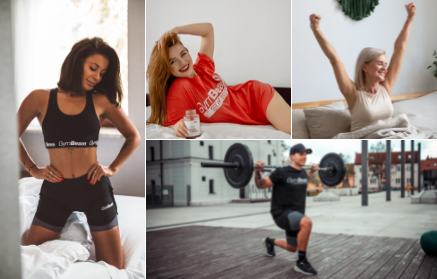Table of Contents
Are you still looking for the best methods to ensure more energy for any activity during the day, give smiles to all parties, reduce the risk of disease, lose weight more easily or finally hit your personal best in squats which you have been trying to do for months? Do you regularly use cold water therapy practices, undertake morning yoga, meditate, or even have a diet and training plan that even a professional athlete wouldn’t be ashamed of? It is possible that despite all this, your performance tends to stagnate and you no longer know what else to do for your satisfaction.
However, you may have somehow overlooked an extremely important part of human life – sleep. A sufficiently long and good sleep works without exaggeration as an elixir of health. And what’s the best part? It’s totally free. Just lie down in a comfortable bed, close your eyes, fall asleep, and it will take care of all magically on its own. Let’s learn together why sleep is indispensable for quality athletic performance, weight loss and muscle growth. You may be surprised at how much influence it has.
Why do we need sleep?
Without sleep, we would find it difficult to complete our fully loaded to-do list, training, food preparation and housekeeping with ease and a smile.
During sleep the following occurs:
- restoration of energy sources
- the sorting and storing of learned information into our memory
- regeneration of damaged cells
- restoration of the nervous system
- and restoration of muscle mass. [1–2]
To get the most out of sleep, we need to devote about 1/3 of a day to it (7 – 9 hours). In general, the more physically and mentally demanding a day we have, the greater the need and importance of sleep. Famous top athletes, who devote half the day to this relaxing activity, also know. They claim to be unable to perform 100% without it. The likes of Roger Federer or LeBron James sleep for 12 hours a day. Michael Phelps or Usain Bolt did not skimp on quality sleep either during the peak of their careers. And they knew why. [2-4]
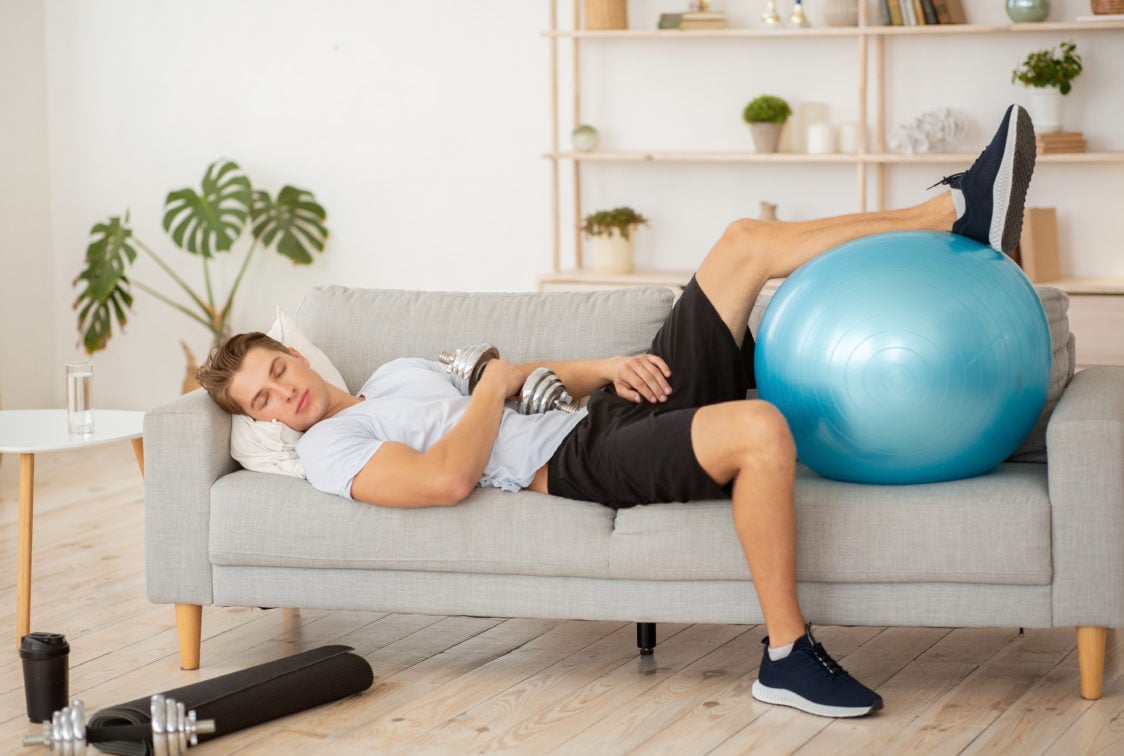
Elite athletes sleep less than they need to. What other results did the new study show?
With sleep duration, the aforementioned stars could also set an example for other elite athletes. How is that possible, you ask? According to a study published in 2021, most of them are sleeping for a much shorter period than they need. A total of 175 elite basketball players, swimmers, football players, and other above-average active individuals were observed by experts who participated in the study. [5]
How was the study conducted on elite athletes and what results did it show?
- The athletes completed questionnaires regarding their sleeping habits,
- and they found that on average they needed 8.2 hours of sleep to feel sufficiently rested
- and over the next 12 nights the length and quality of sleep was measured
- and it was found that they actually slept an average of just 6.7 hours.
- Individual athletes slept on average for a shorter period than those involved in team sports
- and thus only 3% of athletes achieved a sleep duration that they themselves consider sufficient.
- 71% of athletes sleep an hour less than they subjectively need.
The study authors point out that sleep deprivation can negatively affect an athlete’s performance in both competition and training. In particular, this has a negative effect on the heart, breathing and lactate metabolism. It also plays a big role in the affect on mood, motivation and the level of exertion felt. How do you get out of it? The recommendations the study authors came up with may help.
How to optimise your sleep regime?
- move morning workouts to a time after 6 a.m.
- wake up later in the morning after evening training
- timing of bedtime and getting up so that the athlete sleeps for a minimum of eight hours
Based on the results of this study, we can assume that most top athletes do not sleep for twelve hours like tennis player Federer. It’s no exception that they spend only half their time in bed compared to him. And while they were professionals, it may not be the case that they only play sports for a living. They may have other jobs and other responsibilities that simply leave them no more time to rest.
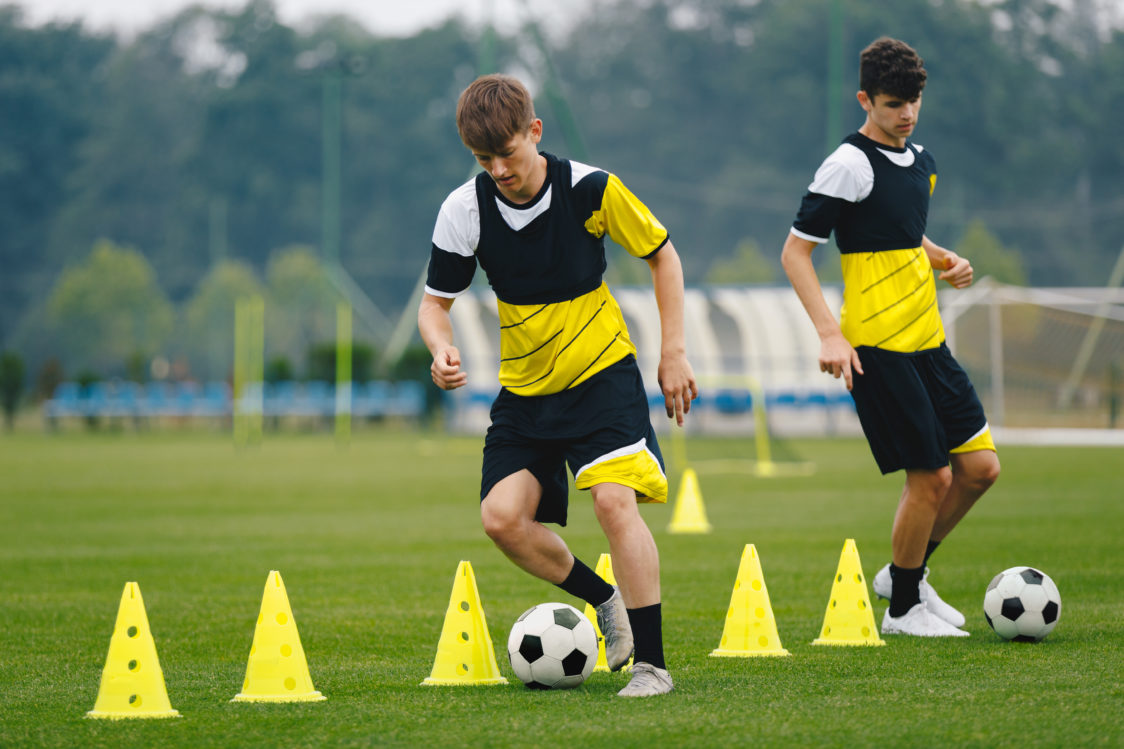
Do sports students need to sleep longer than the adult population?
In addition to top athletes, sleep deprivation is also a threat to students who are also engaged in some high-level sport. They can easily spend 27 – 41 hours a week training and racing. Add to that the time devoted to study and other routine activities, such as food preparation or transportation to and from school, so it’s clear they don’t have many hours left to sleep. It’s not so surprising that three out of five college athletic students sleep less than seven hours. At the same time, the recommended sleep duration for adolescent athletes is a minimum of 9 – 10 hours. [6-7]
You might be interested in these products:
7 reasons why sleep is the best fat burner and pre-training in one
The quality and duration of sleep is not just reflected in the management of everyday activities. Experts consider its sufficient duration also one of the conditions for successful weight loss, muscle gain and top sporting performance. What’s behind it all?
1. Helps with energy regeneration
Quality sleep will give us energy for a new day full of sport and life challenges. We all know this. In the evening we fall into bed feeling completely exhausted and after eight hours we wake up full of energy with a new appetite to handle everything we have planned. During sleep, the body does not consume as much energy as during the day. This gives it room to store it in the form of the carbohydrate glycogen. Our muscles and brains then use it for their function.
Fortunately, sleep can somehow clear a mind full of worry, and we wake up in the morning with an almost clear head. We owe it to the brain, which does not rest even when we are in the realm of dreams. In fact, at the time, it is getting rid of unnecessary information, while storing important information that we have observed in the previous day. [8-9]
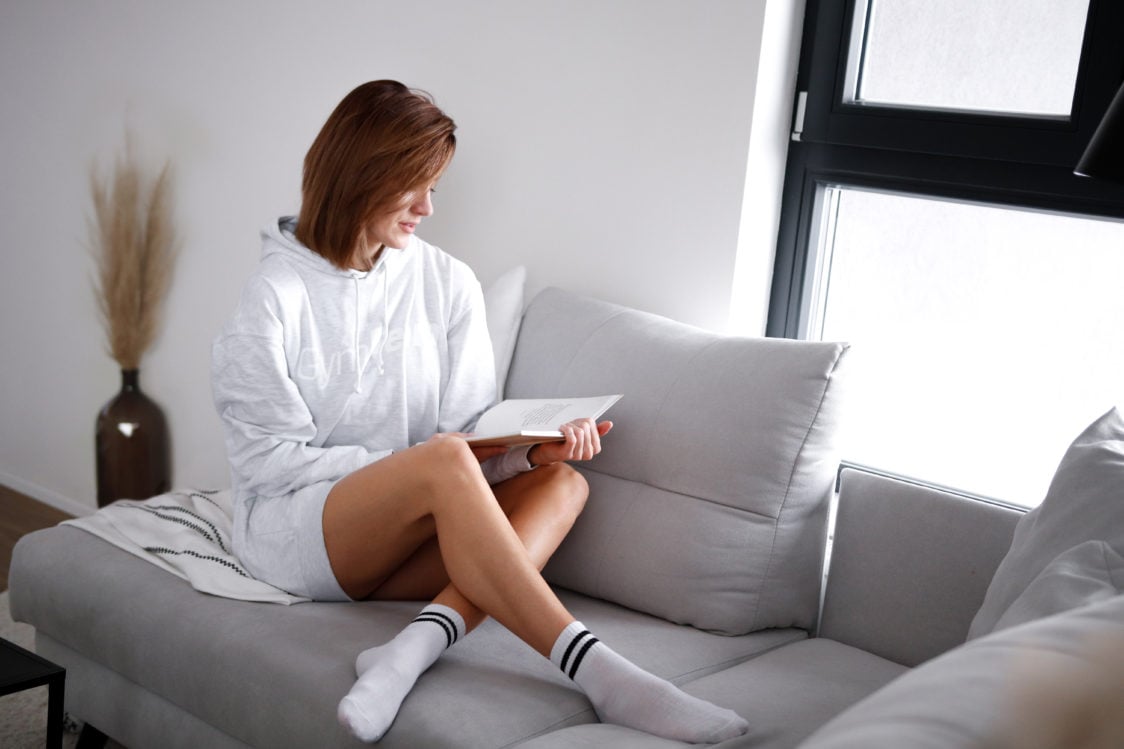
2. Supports regeneration and muscle growth
All bodybuilders and other athletes who strive for maximum muscle growth will not give up their sleep. During this process, damaged muscle fibres are repaired and grow. This is mainly due to the higher production of growth hormone. As the name of this substance suggests, it promotes the growth and regeneration of muscle mass. It floods the body especially during deep sleep (non-REM phases 3 and 4), when our body is at its most relaxed. This occurs about ninety minutes after falling asleep. According to some sources, approximately 70% of daily growth hormone is produced at this time. [10-11]
The length of time and quality of sleep also affect the amount of testosterone in the body. This not only affects male sexual behaviour, but is also indispensable for muscle and strength growth, as it promotes proteosynthesis and also increases bone mass. When sleep duration was reduced from 8 to 5 hours in one study in men, they were measured to have a lower testosterone level of 10 to 15%. [12]
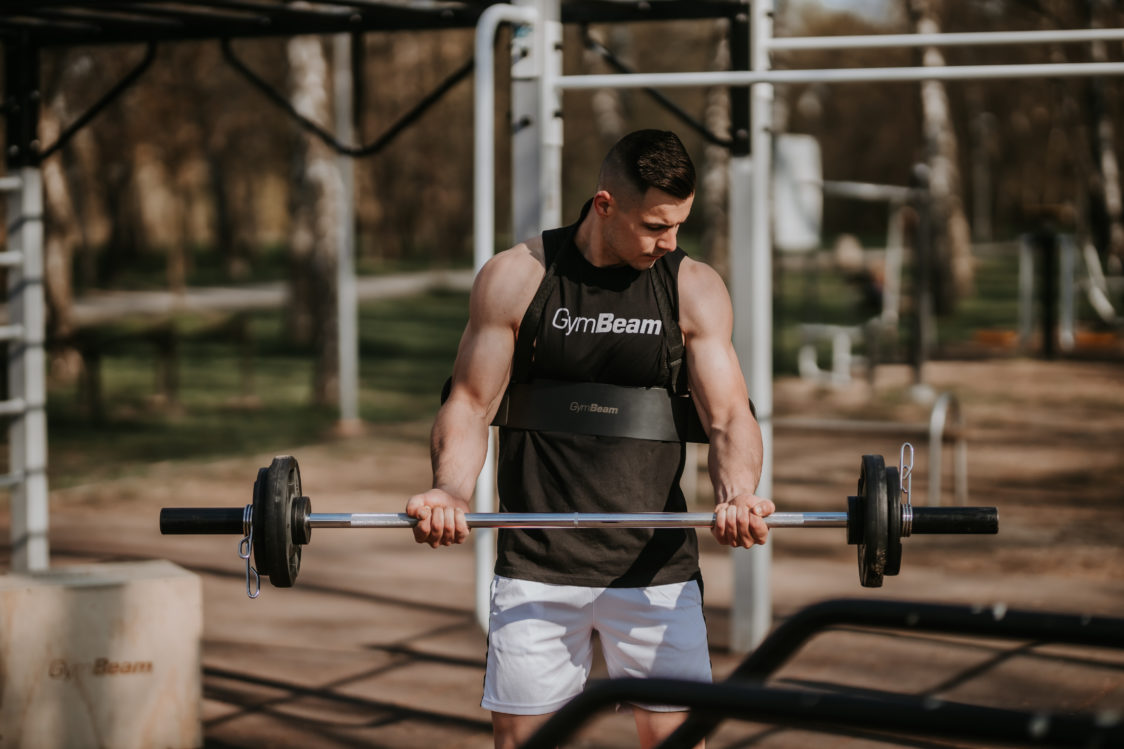
When we sleep little, more cortisol can also flood our bodies. It is the well-known stress hormone whose higher levels complicate not only weight loss but also muscle growth. It is also sometimes referred to as the catabolic hormone. This means that it contributes to the breakdown of muscle mass into energy and ‘hampers’ its production. In this context, it has opposite effects to the anabolic growth hormone and testosterone. Sleep is such a great aid to create an ideal hormonal environment in the body for muscle growth and maximising the results of our training efforts. [13-14]
If you want to learn how to detect a testosterone deficiency and how to address it, read our article 10 Testosterone Deficiency Symptoms – What Causes It and How To Address It?
3. It improves speed, strength, coordination and other sporting skills
Athletes, especially professional ones, can easily spend 5-6 hours a day training. In the process, they are improving both in the discipline itself and in other sporting skills. To maximise performance, they have a quality diet, use supplements and have massages. But often they overlook the importance of sleep, which can demonstrably help them achieve better results.
Good quality sleep can not be substituted with state-of-the-art regeneration technology or the best pre-workout supplement. This has already been confirmed by a number of studies looking at this link. In one of them, scientists focused on Stanford University basketball players. They initially spent around 8 hours a day sleeping. In the study, however, they were to increase this time to 10 hours for 5-7 weeks. [15]
What effect did a longer sleep duration have on basketball players’ sports performance?
- 9% improved their ball-throwing accuracy
- 9.2% more successful in shooting 3-point baskets
- their reaction time improved
- they ran faster
- they had a better mood and felt more energised
- they felt less tired
When a player’s success rate when attempting a three-point basket improves by almost 10%, it can have a big impact on the results of the entire team and its position on the ladder. Swimmers had similar success, increasing the number of hours spent sleeping for several weeks as part of the study.
What effect did sleep time have on swimmers’ sports performance?
- were faster by 0.51 seconds in the 15-metre sprint
- started 0.15 seconds earlier off the blocks
- they managed a better time on the turn by 0.1 seconds
- a better mood and general alertness were also observed
University football players and tennis players have also come to the attention of scientists. Footballers were faster on the field and tennis players were more accurate and successful in rallies and serving.

But even strength athletes should not underestimate quality sleep. According to a set of studies that have looked at this topic, a sleep deficit (sleeping under six hours) can negatively affect the implementation of complex exercises.
These include squats, the dead lift or bench press. They are difficult regarding technique and nervous muscle involvement, and therefore a small number of hours of sleep may result in perhaps less weight lifting or fewer repetitions.
We should not forget endurance athletes. For example, in one study, observed cyclists extended their sleep from an average of 6.5 – 7 hours to 8.4 – 8.9 hours. This helped them improve their performance by 3% over a 60-minute timed leg. [15-18]
What can a prolonged sleep bring to athletes?
- higher success when shooting goals, throwing at the basket or hitting the ball with a racket
- faster sprints
- greater strength for training with weights and other weight sets
- better endurance performance when running or cycling
- faster reactions during a game or during sporting performance
- improved body coordination
- a better mood and more energy throughout the day
4. Tips for losing weight, prevent overeating and eat healthily relative to your needs
Sleep is also linked to weight loss or healthy weight gain. It’s not like we lie down in the evening and wake up 5kg lighter in the morning, or with biceps that Ronnie Coleman himself would envy. But if we sleep well, we support our efforts to follow a diet that can lead us to great results over time.
What’s behind it? Once again hormones have a finger in it again. Leptin and ghrelin affect appetite, satiety and hunger. Good quality sleep promotes balanced levels of these hormones and we have more control over the choice and quantity of food eaten. If, on the other hand, we get less sleep than we need, these “hormones will fluctuate.” Typically, levels of the hunger hormone (ghrelin) will increase and the satiation hormone (leptin) will decrease.
During the day, we have a greater need to eat more calorific foods, such as sweets or chips. However, even after eating, we feel less satisfied. We’ve probably met with it ourselves after a sleep-poor night. We often succumb to such cravings, and because of this we have trouble following a diet that we plan according to our needs. If we are trying to stick to any meal plan, a quality and long enough sleep should be one of our priorities. This should be amplified during weight loss. [19-20]
Quality sleep has a surprisingly big impact on weight loss success for some. When we look at it from a practical point of view, it is clear. After a sleepless night or long-term sleep deprivation, we have little energy. We are pleased to be able to handle the most important responsibilities, such as work, family and housework. There’s not much strength and determination left to train or prepare food. Because of less exercise, we have a lower energy output. This will typically be supplemented by cravings for sugary and fatty foods, which will in turn increase our caloric intake.
By combining these circumstances, we can get into a caloric surplus and start gaining weight instead of losing weight. If we sleep long enough, on the other hand, we can more easily meet the training schedule requirements and keep our appetites better under control. This will make it easier for us to eat fewer calories, creating the calorie deficit necessary to lose weight.

5. Encourages motivation and the will to pursue your goals
After a sleepless night, we don’t feel like jumping out of bed and starting on the tasks we’ve set for the day. Quite the opposite. The still-unmade bed calls us back to dreamland, and we must resist its temptation all day. The results of studies that have focused on this subject are also clear. Lack of sleep or cutting it out altogether is associated with a lowered motivation to participate in social interactions or physical activities.
When we are sleepy, we are more tempted by the idea of staying alone at home on a comfortable couch than going out and playing sport. For everything else, including cooking healthy food, training, preparing for an exam or regular work, we have to put an unusually high amount of effort into it. So we have another reason not to watch several episodes of the popular series in the evening and prefer to go to bed earlier. This makes it easier to master all the goals and tasks that await us the next day. [21–22]
6. Reduces the risk of injury
Sleeping well makes us feel physically and mentally tougher. We can concentrate better, we have quicker reaction times and we are generally more alert. This reduces the risk of injury both in and out of sport. According to a study conducted on American soldiers, sleep deprivation increases the risk of injury. Soldiers sleeping four to five hours a day were more than twice as likely to develop injuries as those who slept at least eight hours.

Similar results were achieved by studies in athletes. When they slept less than eight hours, they had a 1.7 times higher risk of injury during training. This can be due to several factors. Impaired concentration ability, less vigilance, but also poor regeneration and overall fatigue of the body.
An injury can keep us out of training for a long time, delaying our goals. If possible, we should try to get at least eight hours of sleep a day, which is associated with a lower risk of injury. [23-24]
7. Promotes immunity and resistance to illness
When we can’t sleep enough in the long run, our body’s defence mechanism weakens in the form of immunity, and we can get sick more easily. During sleep, cells called cytokines form in the body, among other things, to help fight infection and inflammation.
In addition, during this process, there is a higher activity of white blood cells, which can recognise virus-infected cells and trigger an immune response.
A properly functioning immune system is essential for our health. Especially during periods of intense training and strict dieting, it is important to support it as much as possible. Good sleep is one way to maintain a strong immunity and not succumb to some virus that attacks us. [25-26]
Read more about sleep and its effect on health and sports performance in our article How To Improve Sleep and How Does It Affect the Health and Growth Of Muscle Mass?
Why don’t we sleep enough?
The need to watch a new series of La Casa de Papel or Sex Education or play computer games is now what is behind a sleep deficit. Athletes, especially professional ones, often travel, train early in the morning or late in the evening, and then undertake family, study or other duties. They may also experience a greater level of stress, which also has a negative effect on sleep. All this can disrupt your sleep routine, and it is not always realistic to get at least seven hours of sleep.
Diseases such as diagnosed insomnia or restless leg syndrome may also play a role in sleeplessness. Some factors in our lives we just cannot control 100 percent. The goal is to create habits that help us get the best possible quality sleep. [27-28]
If you’re wondering what else to try when even a good night’s sleep doesn’t help with fatigue, read our article What To Do If You Feel Tired After Sleeping? Focus on These 7 Types of Rest.
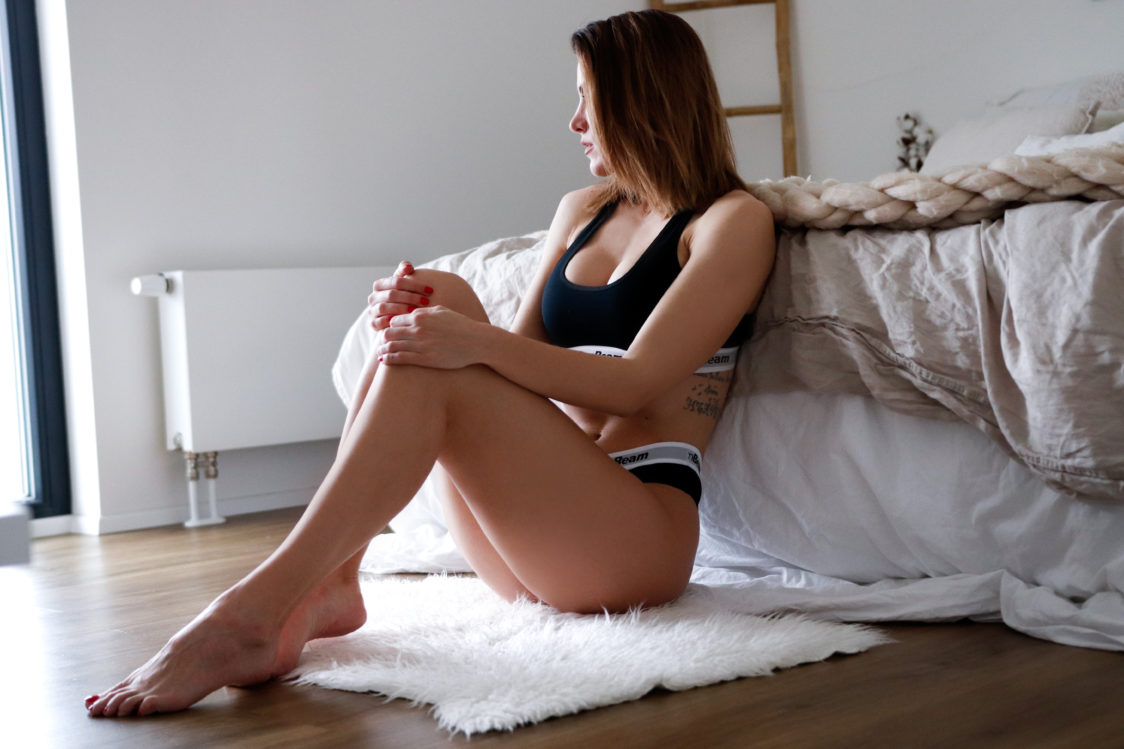
Practical tips on how to get royal night’s sleep
Often it may be that we go to bed on time, but a restful sleep still seems to avoid us.
How to improve sleep and thus promote sports performance, weight loss and muscle growth?
- Activity during the day – it is not necessary to use all of physical strength every day. A walk or other activity is enough to make us feel pleasantly tired. Instead, we should avoid strenuous workouts in the evening, after which we will have trouble calming the body.
- Sleep routine – we will go to bed and get up at a similar time, even over the weekend. We’ll have a nice relaxing atmosphere at home before bed. We can try a warm bath, candles and pleasant music.
- Restrict blue light – computers, mobiles and TVs all emit blue light which can negatively affect melatonin levels. It is the sleep hormone that is important for general calming of the body and falling asleep. We can use a blue light filter for evening work on electronic devices. If we don’t have to work anymore, swapping a cell phone or tablet for a book is an even better solution.
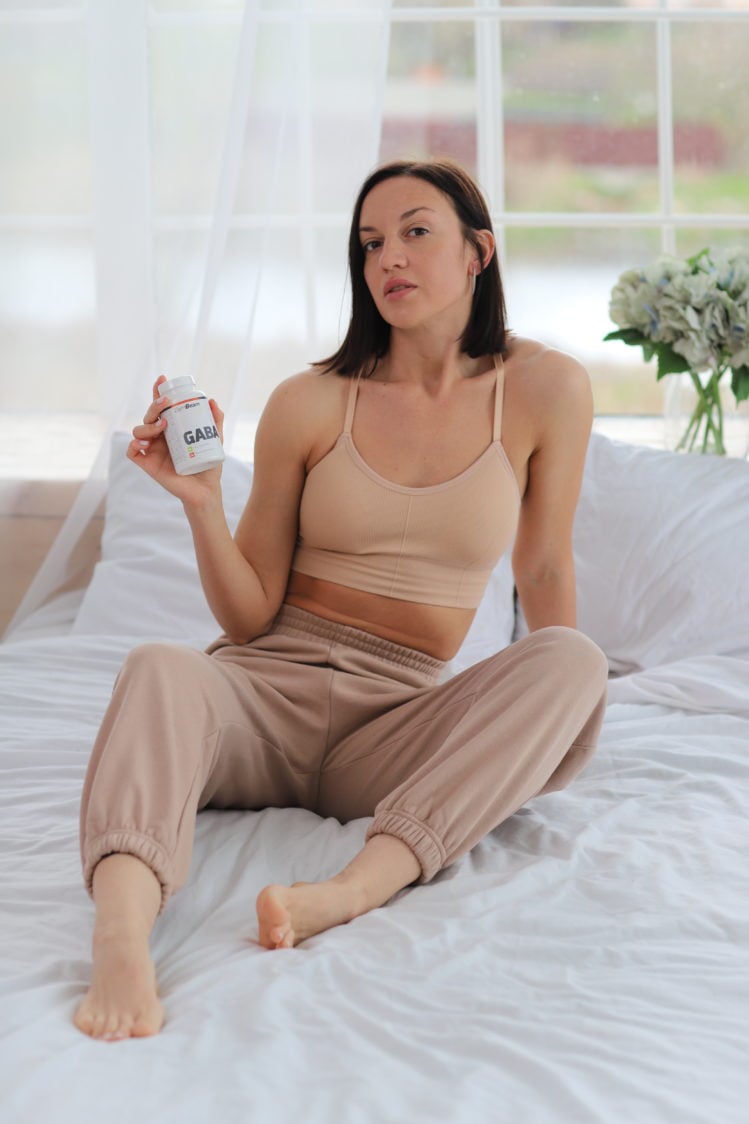
- Soothing meditation – after a hard day of challenges, it’s sometimes hard to calm down and stop thinking about all the things we’ve been through. A short meditation can help, reducing stress and moving on to other thoughts.
- Limiting caffeine in the evening – this stimulant typically takes 4-6 hours to be removed from the body. If we have a cup of espresso in the evening, it can negatively affect our ability to fall asleep. Plus, each of us has a slightly different sensitivity to caffeine and its metabolism. Someone might have a coffee just before bed, and still fall asleep in a few minutes. Another isn’t so lucky, and even though they had their last cup of espresso at 4 p.m., they still count sheep an hour after getting into bed. Everyone should thus approach their caffeine intake according to their own experience.
- Limiting hard-to-digest meals and drinking alcohol just before bedtime – if we dine on fried food with one or a few pints of beer, we may have trouble falling asleep. Our body will be busy digesting food and breaking down the alcohol, which is not an ideal state for a restful sleep.
- Dietary supplements to support sleep – magnesium, a popular GABA nootropic, adaptogens such as ashwagandha and melatonin are most commonly used for general soothing and a better sleep, CBD oil, the amino acid tryptophan or a complex dietary supplement to promote falling asleep containing B vitamins and extracts of potent herbs may help too. [29-30]
If you’re interested in more tips on how to fall asleep more easily, read our article How To Fall Asleep Quickly? Try These Simple Tips For A Better Sleep
What should you remember?
We should sleep a minimum of seven hours a day depending on how demanding our schedule is. Good quality sleep makes it easier to lose weight, be faster on the pitch, lift more weight during training and generally feel full of energy, determination and motivation. Sleep is by its nature the best natural fat burner and pre-training in one. In addition, it can also help us prevent injuries or illness and manage a demanding training schedule without any limitation.
Do you have anyone amongst your friends who still thinks sleep is overrated? If so, share this article with them. Maybe you can change their mind.
[1] Worley, S. L. The Extraordinary Importance of Sleep. – https://www.ncbi.nlm.nih.gov/pmc/articles/PMC6281147/
[2] Sleep Foundation. Why Do We Need Sleep? – https://www.sleepfoundation.org/how-sleep-works/why-do-we-need-sleep
[3] Mukherjee, S., Patel, S. R., Kales, S. N., Ayas, N. T., Strohl, K. P., Gozal, D., & Malhotra, A. An Official American Thoracic Society Statement: The Importance of Healthy Sleep. Recommendations and Future Priorities. – https://doi.org/10.1164/rccm.201504-0767ST
[4] How Famous Athletes Sleep. SensorGel. – https://sensorgel.com/how-some-famous-athletes-sleep/
[5] Sargent, C., Lastella, M., Halson, S. L., & Roach, G. D. How Much Sleep Does an Elite Athlete Need? – https://doi.org/10.1123/ijspp.2020-0896
[6] Kroshus, E., Wagner, J., Wyrick, D., Athey, A., Bell, L., Benjamin, H. J., Grandner, M. A., Kline, C. E., Mohler, J. M., Prichard, J. R., Watson, N. F., & Hainline, B. Wake up call for collegiate athlete sleep: Narrative review and consensus recommendations from the NCAA Interassociation Task Force on Sleep and Wellness. – https://doi.org/10.1136/bjsports-2019-100590
[7] Sleep Foundation. How Much Sleep Do Student Athletes Need? – https://www.sleepfoundation.org/teens-and-sleep/student-athletes-sleep-time
[8] Poe, G. R. Sleep Is for Forgetting. – https://doi.org/10.1523/JNEUROSCI.0820-16.2017
[9] Bellesi, M., de Vivo, L., Koebe, S., Tononi, G., & Cirelli, C. Sleep and Wake Affect Glycogen Content and Turnover at Perisynaptic Astrocytic Processes. – https://doi.org/10.3389/fncel.2018.00308
[10] The influence of human growth hormone (HGH) on physiologic processes and exercise. – https://www.physio-pedia.com/The_influence_of_human_growth_hormone_(HGH)_on_physiologic_processes_and_exercise
[11] Van Cauter, E., & Plat, L. Physiology of growth hormone secretion during sleep. – https://doi.org/10.1016/s0022-3476(96)70008-2
[12] Leproult, R., & Van Cauter, E. Effect of 1 Week of Sleep Restriction on Testosterone Levels in Young Healthy MenFREE. – https://doi.org/10.1001/jama.2011.710
[13] Cortisol in Concurrent Training. – https://www.unm.edu/~lkravitz/Article%20folder/cortisol.html
[14] Recovery and sleep: Why training timing counts. – https://www.sportsperformancebulletin.com/endurance-training/recovery-strategies/recovery-sleep-training-timing-counts/
[15] Mah, C. D., Mah, K. E., Kezirian, E. J., & Dement, W. C. The Effects of Sleep Extension on the Athletic Performance of Collegiate Basketball Players. Sleep – https://doi.org/10.5665/SLEEP.1132
[16] Knowles, O. E., Drinkwater, E. J., Urwin, C. S., Lamon, S., & Aisbett, B. Inadequate sleep and muscle strength: Implications for resistance training. – https://doi.org/10.1016/j.jsams.2018.01.012
[17] Roberts, S. S. H., Teo, W.-P., Aisbett, B., & Warmington, S. A. Extended Sleep Maintains Endurance Performance Better than Normal or Restricted Sleep. – https://doi.org/10.1249/MSS.0000000000002071
[18] Stack. Why 8 Hours of Sleep Shouldn’t Be the Goal for Athletes. – https://www.stack.com/a/why-8-hours-of-sleep-a-night-shouldnt-be-the-goal-for-athletes
[19] Can Overeating Cause Sleep Disturbances? Sleep Foundation. – https://www.sleepfoundation.org/physical-health/sleep-and-overeating
[20] Taheri, S., Lin, L., Austin, D., Young, T., & Mignot, E. Short Sleep Duration Is Associated with Reduced Leptin, Elevated Ghrelin, and Increased Body Mass Index. – https://doi.org/10.1371/journal.pmed.0010062
[21] Axelsson, J., Ingre, M., Kecklund, G., Lekander, M., Wright, K. P., Jr, & Sundelin, T. Sleepiness as motivation: A potential mechanism for how sleep deprivation affects behavior. – https://doi.org/10.1093/sleep/zsz291
[22] Engle-Friedman, M. The effects of sleep loss on capacity and effort. – https://doi.org/10.1016/j.slsci.2014.11.001
[23] Reuters. More sleep at night might reduce daytime injury risk. – https://www.reuters.com/article/us-health-sleep-injuries-idUSKBN20E2OI
[24] Milewski, M. D., Skaggs, D. L., Bishop, G. A., Pace, J. L., Ibrahim, D. A., Wren, T. A. L., & Barzdukas, A. Chronic Lack of Sleep is Associated With Increased Sports Injuries in Adolescent Athletes. – https://doi.org/10.1097/BPO.0000000000000151
[25] Besedovsky, L., Lange, T., & Haack, M. The Sleep-Immune Crosstalk in Health and Disease. – https://doi.org/10.1152/physrev.00010.2018
[26] Bollinger, T., Bollinger, A., Skrum, L., Dimitrov, S., Lange, T., & Solbach, W. Sleep-dependent activity of T cells and regulatory T cells. – https://doi.org/10.1111/j.1365-2249.2008.03822.x
[27] Cedars-Sinai. – https://www.cedars-sinai.org/health-library/articles.html
[28] HelpGuide.org. Sleep Deprivation: Symptoms, Causes, and Effects – https://www.helpguide.org/articles/sleep/sleep-deprivation.htm
[29] Sleep Foundation. Caffeine’s Connection to Sleep Problems. – https://www.sleepfoundation.org/nutrition/caffeine-and-sleep
[30] Vitale, K. C., Owens, R., Hopkins, S. R., & Malhotra, A. Sleep Hygiene for Optimizing Recovery in Athletes: Review and Recommendations. – https://doi.org/10.1055/a-0905-3103

